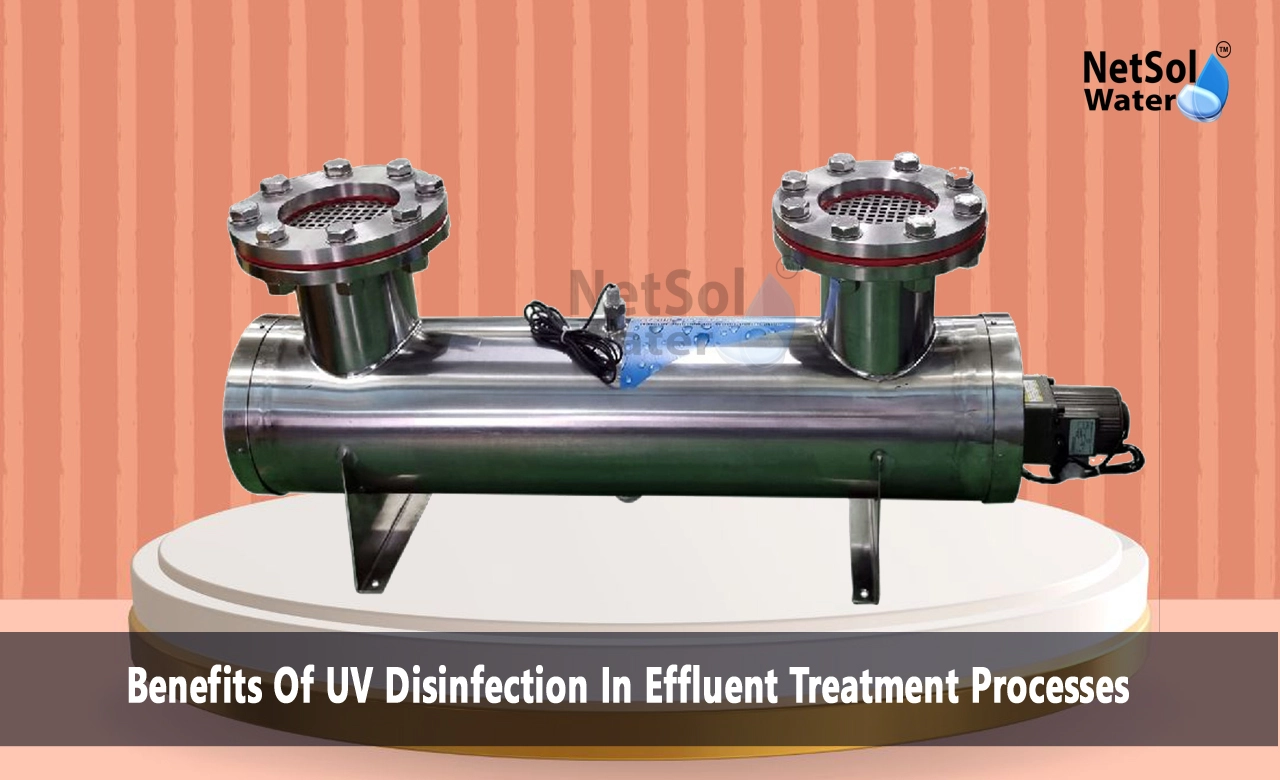Benefits Of UV Disinfection In Effluent Treatment Processes
Effluent treatment has evolved significantly in recent years. UV disinfection stands out as a revolutionary technique that revolutionises wastewater handling. It's making a major influence across numerous industries.
Why UV Disinfection Matters?
UV disinfection uses ultraviolet li ght to kill hazardous bacteria unlike previous chemical-based techniques. It destroys microorganisms with a lethal sunburn they can't recover from! This strategy offers several benefits from cost savings to better safety. Let's investigate the advantages that make UV disinfection a top choice for wastewater treatment.
Killing Pathogens
UV disinfection excels at removing dangerous germs. It targets microbes' DNA destroying their ability to multiply and cause harm. Bacteria viruses and other nasty organisms don’t have a chance against this effective approach.
UV light can break down the barriers of even the strongest germs resistant to typical chemical treatments. This makes it useful for ensuring treated water is suitable for discharge or reuse.
The method is simple quick and incredibly effective. Water travels through a chamber where UV radiation exposes it eliminating microorganisms in seconds.
Environmentally Friendly Disinfection
UV disinfection offers a greener alternative to chemical-based techniques. It doesn't employ harsh chemicals avoiding the chance of unwanted byproducts being emitted into the environment.
This environmentally beneficial approach allows safe discharge of treated water into natural water bodies without worrying about chemical contamination. It's a game-changer for sectors reliant on water-intensive processes in terms of regulatory compliance and environmental stewardship.
UV disinfection doesn't affect water's chemical composition retaining its inherent features. This makes it suited for a wide range of applications including food and beverage production and delicate environments.
Cost-Effective in the Long Run
While initial investment in UV disinfection equipment could seem pricey long-term cost benefits are significant. UV disinfection mostly relies on electricity to power UV lamps unlike chemical treatments which require constant purchasing and storage.
This results in lower operational costs over time. There's no need to regularly buy store and handle chemicals which can be a huge expense in typical treatment systems. UV systems often have minimal maintenance needs lowering downtime and labour expenses.
The cost-effectiveness becomes even more apparent when considering its efficiency. The rapid method allows treatment of high flow rates and big water volumes immediately a major advantage for enterprises dealing with substantial effluent amounts.
Reducing Chemical Hazards
UV disinfection offers a safer alternative to chemical-based treatments by reducing the need to handle store and transport dangerous compounds.
This reduction in chemical usage offers a safer work environment for employees. It reduces the possibility of chemical leaks or exposure simplifies safety protocols and training requirements making it easier for facilities to maintain high safety standards.
The safety benefits extend beyond the treatment centre. By decreasing chemical transportation and storage UV disinfection decreases accident hazards during transit or on-site particularly crucial for facilities in densely populated areas or sensitive environmental zones.
Versatility Across Industries
UV disinfection's adaptability allows its application across many industries each with unique effluent treatment issues. From municipal wastewater treatment to food and beverage industry UV disinfection displays its worth in varied settings.
In the pharmaceutical sector UV disinfection ensures effluent is free from active medicinal components before release. In aquaculture it plays a critical function in preserving water quality for fish health. The versatility of UV technology allows customizing to meet unique industry needs and regulatory constraints.
This adaptability extends to operation scale. UV disinfection systems can be built for small-scale applications like individual buildings or scaled up for huge municipal treatment plants. This versatility makes it suitable for a wide spectrum of users from small businesses to major organizations and government entities.
Tackling Emerging Contaminants
UV disinfection particularly when paired with other sophisticated oxidation methods shows promise in combating new pollutants. These include medications personal care items and other chemicals that typical treatment procedures may not fully address.
By breaking down complex molecules UV treatment can help minimize these chemicals in treated effluent. This is becoming increasingly critical as water quality laws become more strict.
The capacity to manage new pollutants positions UV disinfection as a forward-thinking technology. It's not just about achieving existing standards but also preparing for future issues in water treatment.
Consistent Performance
UV disinfection delivers consistent efficacy across varied settings unlike chemical treatments affected by factors like temperature and pH.
This reliability is important for industries required to meet tight regulatory criteria. UV disinfection gives facilities better confidence in their treated effluent quality minimizing non-compliance risks and associated fines or reputational damage.
Advanced UV systems often feature sensors and monitoring equipment providing real-time performance data. This allows operators to immediately identify and address concerns ensuring the treatment process stays effective.
Minimizing Disinfection Byproducts
UV disinfection doesn't produce disinfection byproducts (DBPs) unlike chemical procedures particularly chlorine-based treatments. This eliminates a key concern in effluent treatment and simplifies achieving water quality regulations.
The lack of DBPs is particularly essential where treated water may contact humans or sensitive environments. It adds an extra layer of safety and environmental protection.
Conclusion:
UV disinfection proved itself as a potent instrument for cleaner safer water. Its capacity to eradicate infections without chemicals makes it environmentally friendly. Cost-effectiveness versatility and durability have enhanced its popularity across numerous industries.
As we confront escalating water quality and environmental protection problems UV disinfection satisfies present needs and future demands. It corresponds with broader sustainability and responsible resource management goals.
The role of UV disinfection in wastewater treatment will certainly rise further. With continued technical breakthroughs and emphasis on sustainable practices UV disinfection will play a significant role in determining water treatment's future.
To explore customised commercial RO plants, Industrial RO plants, ETP or STP solutions for your needs in your areas and nearby regions, contact Netsol Water at:
Phone: +91-965-060-8473, Email: enquiry@netsolwater.com



